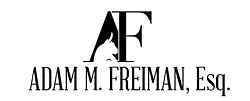Healthcare is a fundamental human right, but in the United States and many other parts of the world, the cost of medical care has been rising steadily over the years, leading to a growing concern about the affordability of healthcare. One of the most visible manifestations of this issue is the rising tide of medical bills that individuals and families face.
One of the most heartbreaking consequences of the escalating medical bills crisis is the increasing number of individuals and families pushed to the brink of bankruptcy. For many, a sudden medical emergency or a chronic illness can swiftly wipe out their savings, max out their credit cards, and leave them drowning in debt.
Medical bills are a leading cause of bankruptcy in the United States, despite the fact that a significant portion of those declaring bankruptcy had health insurance coverage. This cruel irony illustrates the profound impact that skyrocketing healthcare costs can have on people’s lives. Bankruptcy due to medical bills not only shatters financial stability but also carries emotional and psychological burdens that can persist long after the debts are discharged. It is a stark reminder of the urgent need for comprehensive healthcare reform and better access to affordable medical care for all.
Factors Contributing to Rising Medical Bills
- Administrative Costs: One major factor behind the increasing cost of healthcare is the complex and bureaucratic nature of the system. Insurance companies, healthcare providers, and government agencies all have their own administrative processes, which drive up overhead costs. These expenses often get passed down to patients through higher bills.
- Prescription Drug Prices: The cost of prescription drugs has been a contentious issue in healthcare. The prices of many essential medications have skyrocketed in recent years, making it difficult for patients, especially those without adequate insurance coverage, to afford necessary treatments.
- Technological Advancements: While medical advancements have improved patient outcomes, they have also contributed to higher costs. Cutting-edge medical technologies and treatments can be expensive to develop, maintain, and administer, which ultimately translates into higher bills for patients.
- Aging Population: As the population ages, there is an increased demand for healthcare services. Older individuals tend to require more medical attention and chronic disease management, further straining the healthcare system’s resources and driving up costs.
- Health Insurance Challenges: While health insurance is intended to help manage healthcare costs, the rising premiums, deductibles, and co-pays associated with many insurance plans are placing an increasing financial burden on patients. High out-of-pocket costs can lead to surprise medical bills and unexpected expenses.
- Lack of Price Transparency: The lack of price transparency in the healthcare industry makes it challenging for patients to make informed decisions about their care. Without clear information about the costs of medical procedures, patients often find themselves facing unexpectedly high bills.
The Impact on Individuals and Families
The burden of rising medical bills extends far beyond the financial aspect. Many individuals and families are forced to make difficult choices, such as forgoing necessary medical treatment, cutting back on other essential expenses, or even declaring bankruptcy. The stress and anxiety caused by mounting medical debt can also take a toll on people’s mental and emotional well-being.
Moreover, the fear of unmanageable medical bills can discourage people from seeking timely medical care, potentially leading to more severe health issues and increased healthcare costs in the long run. This creates a vicious cycle that further exacerbates the healthcare crisis.
Conclusion
The rising cost of medical bills is a significant and complex issue that affects millions of individuals and families. In Maryland, medical debt can be classified as unsecured debt, and it will often be forgiven in a personal bankruptcy case. However, there is a statute of limitations on unpaid medical bills along with other factors that can affect your decision to file bankruptcy. It is important to consult with a bankruptcy attorney as soon as possible.
Contact Adam Freiman at (410) 486-3500 if you are facing bankruptcy due to medical bills.





